Backup Home

What happens if my home security system fails during a power outage ?
### What happens if my home security system fails during a power outage? **Scenario Overview:** During a power outage, the functionality of your home security system depends on its type and configuration. Here's what typically happens: #### Battery Backup Systems - **Immediate Shift to Battery Power:** Modern systems switch automatically to battery backup during outages. - **Notification to Homeowner:** Some systems alert homeowners when they switch to battery power. - **Reduced Functionality:** To conserve battery life, certain features like live video streaming might be reduced or turned off. #### Non-Battery Backup Systems - **Loss of Power Means Loss of Function:** Without a backup, the system stops working, leaving your home unmonitored. - **Potential for False Alarms:** Sudden power loss can sometimes trigger false alarms as systems shut down. - **Risk of Unauthorized Access:** With no active security, your home could be vulnerable to break-ins. #### Cellular-Based Systems - **Continued Operation:** Systems that use cellular signals for communication often keep working since they don’t rely on home electricity. - **Possible Data Usage Increase:** More frequent status updates or reconnection attempts could increase data usage. #### Smart Home Integrations - **Dependent on Hub Power Source:** Devices integrated with your security system may rely on the hub’s power source. If the hub has a battery backup, it continues to function; otherwise, it's affected by the outage. - **Possibility of Remote Access:** You might still monitor and manage your system remotely through a smartphone or other device. #### Mitigation Strategies To ensure your home remains secure during a power outage: - **Install a Battery Backup:** This keeps your system functional during short outages if it doesn’t have one already. - **Regularly Test Your System:** Include responses to power failures in your tests to ensure expected functionality. - **Invest in a Uninterruptible Power Supply (UPS):** A UPS provides temporary power, extending operation beyond just battery backup. - **Stay Informed About Power Outages:** Being aware of potential outages helps you prepare, such as charging backup batteries beforehand.

**How long does it typically take for iCloud to complete a full backup ?
iCloud backup time varies based on data amount, internet speed, device performance, and server issues. Small backups may take 1-2 hours, moderate ones several hours, and large ones several days. Tips to improve backup times include connecting to Wi-Fi, closing unused apps, updating the device, checking internet connection, and contacting Apple Support if needed.

How important is it to have a backup power source in case of emergencies ?
The importance of having a backup power source in case of emergencies is crucial in today's world where we rely heavily on electricity. A backup power source can prevent data loss, maintain essential services, ensure safety, reduce downtime, and improve quality of life during power outages. There are various types of backup power sources available, including UPS, generators, solar power systems, and battery backups. Investing in a backup power source is an investment in peace of mind and preparedness for any emergency situation.

How often should I test my home security system to ensure it's working properly ?
Testing your home security system regularly is crucial for maintaining its effectiveness and ensuring that it functions as intended when you need it the most. Here are some guidelines on how often you should test various components of your home security system: - Alarms and Sensors: Monthly testing, check batteries every six months - Surveillance Cameras: Weekly check, review footage periodically - Keypads and Control Panels: Monthly verification, test backup power source every six months - Communication Systems: Quarterly testing, phone line check if using a landline - Environmental Sensors: Annually or seasonally testing, replace batteries annually Steps for testing your home security system include consulting your user manual, notifying authorities if connected to a monitoring service, performing visual inspections, testing each component according to recommended frequency, documenting results, and addressing any issues promptly. By following these guidelines and steps, you can ensure that your home security system remains reliable and effective in protecting your home and loved ones.

What steps should I take to prepare my home for a natural disaster ?
Preparing your home for natural disasters is crucial to ensure the safety of your family and property. Here's a summary of key steps: 1. **Assess Your Risk**: Identify potential disasters and determine your vulnerability based on location. 2. **Develop an Emergency Plan**: Create and practice a plan outlining evacuation routes and meeting places. 3. **Secure Your Home**: Take measures like securing loose objects, reinforcing windows/doors, installing shutters, anchoring furniture, trimming trees, clearing gutters, inspecting the roof, and considering a sump pump. 4. **Maintain Essential Supplies**: Stock up on food, water, medication, first aid kits, backup power sources, important documents in waterproof containers, and prepare an emergency kit. 5. **Stay Informed**: Keep updated on weather conditions and sign up for emergency alerts. By following these steps, you can significantly reduce the risks associated with natural disasters and ensure better preparedness and recovery.
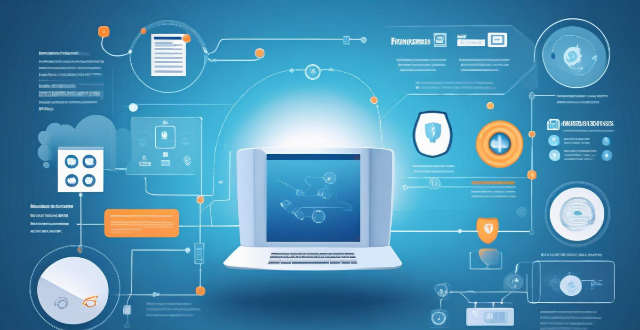
How can I monitor my home security system remotely ?
This guide provides a comprehensive overview of how to monitor your home security system remotely. It covers choosing a reliable security system, connecting it to the internet, monitoring your home remotely, and maintaining your security system. The guide emphasizes the importance of researching and selecting a suitable security system, establishing a secure internet connection, setting up remote access, viewing live streaming footage, receiving alerts and notifications, controlling your security system remotely, regular maintenance, and software updates. By following these steps, you can ensure the safety and security of your home while away.

Can a home security system protect against natural disasters like floods or fires ?
A home security system is primarily designed to protect against intruders and theft, but some advanced systems can also provide protection against natural disasters like floods or fires. Smoke detectors and heat sensors are essential for early detection of fires, while water sensors can detect high moisture levels indicating potential flooding. While home security systems don't typically offer protection against earthquakes directly, they can still be useful in emergencies by providing communication capabilities and access to emergency services. By integrating features like smoke detectors, heat sensors, water sensors, and smart home automation, you can extend the functionality of your home security system to protect against natural disasters like floods or fires.
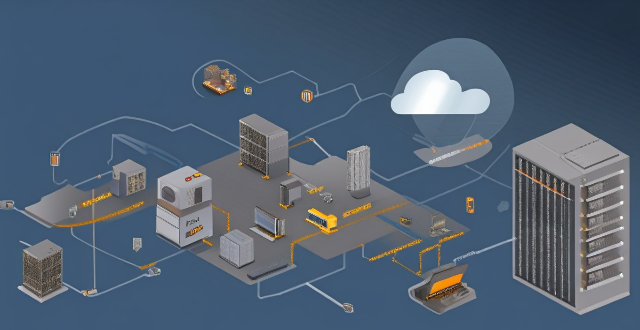
**How often does iCloud back up my device, and can I control when it happens ?
iCloud backup is a feature that automatically backs up iOS devices to Apple's cloud storage service, ensuring data safety and restoration if needed. The frequency of these automatic backups depends on available iCloud space and device usage, typically occurring daily under specific conditions like Wi-Fi connection and device lock. Users can control when iCloud backup happens by manually initiating backups, turning off automatic backups, or adjusting backup settings.

**Does iCloud backup cover all the apps and data on my iPhone or iPad ?
This article explains what iCloud Backup is, what it includes, and what it does not include. It also provides steps to ensure that everything you want backed up is actually being backed up to iCloud.
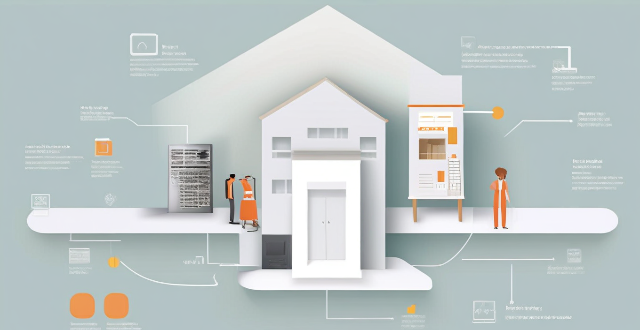
How can I integrate smart home devices with my home security system ?
The article provides a step-by-step guide for integrating smart home devices with a home security system, including determining compatibility, selecting the right devices, installing and configuring them, connecting to the security system, and testing the integration. The goal is to enhance safety and convenience by allowing remote control and monitoring of access, video surveillance, sensors, and lighting.

How can I avoid injuries while working out at home ?
Working out at home can be convenient but also risky. To avoid injuries, warm up before starting your workout, use proper form and technique, start with lower weights and resistance, take breaks and rest between sets, cool down after your workout, and listen to your body. Following these tips will help you have a safe and effective workout routine at home.

What is the impact of smart home technology on the real estate market ?
Smart home technology has a significant impact on the real estate market by increasing home value, improving energy efficiency, enhancing security, allowing for customization and personalization, and integrating with other technologies. This makes homes equipped with smart devices more attractive to potential buyers, leading to faster sales and higher prices.

How can I ensure electrical safety in my home ?
Electrical safety is crucial for maintaining a secure home environment. Hire licensed electricians, schedule inspections, keep appliances clean, avoid overloading outlets, be cautious around water, childproof your home, use proper lighting, keep flammable materials away from electrical appliances, and know how to shut off power in emergencies.

What are some eco-friendly cleaning tips for my home ?
Eco-friendly cleaning tips for your home include using natural products like vinegar, baking soda, and lemon juice; reducing plastic waste by opting for reusable cloths and containers; minimizing water usage during cleaning tasks; choosing energy-efficient appliances; and making your own cleaning solutions. These practices help maintain a clean home while also reducing environmental impact.

What are the most popular voice-activated smart home gadgets ?
Voice-activated smart home gadgets have become increasingly popular for their convenience. The most common ones include smart speakers like Amazon Echo, Google Nest, and Apple HomePod, which can play music, set alarms, provide weather updates, and answer questions. Smart light bulbs, such as Philips Hue, can be controlled to turn on/off, adjust brightness, and change colors using voice commands.

How can I apply minimalist principles for quick and effective home organization ?
Minimalism is about intentional living and promoting clarity, calmness, and efficiency in your home. To apply minimalist principles for quick and effective organization, start by identifying your priorities through listing necessities and assessing functionality. Simplify your space by removing unnecessary items and creating open areas. Categorize and contain items by grouping them together and using clear labeling for easy accessibility. Streamline routines with daily maintenance and simplifying tasks through automation or batch processing. Regularly evaluate and adjust your organizational systems as needs change, embracing quality over quantity and mindful acquisition. Achieving an organized home reflects a purposeful lifestyle supporting well-being and function.
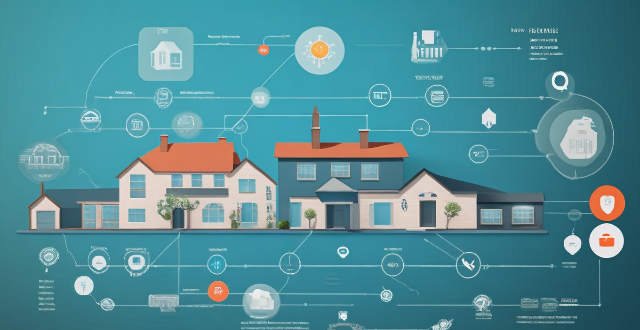
How much does a good home security system cost ?
The cost of a good home security system depends on various factors, including the type of system, features, installation fees, and monitoring services. While DIY systems are generally less expensive, professionally installed systems offer more advanced features and peace of mind through professional monitoring. When choosing a home security system, consider your specific needs and budget to find the best solution for your property.
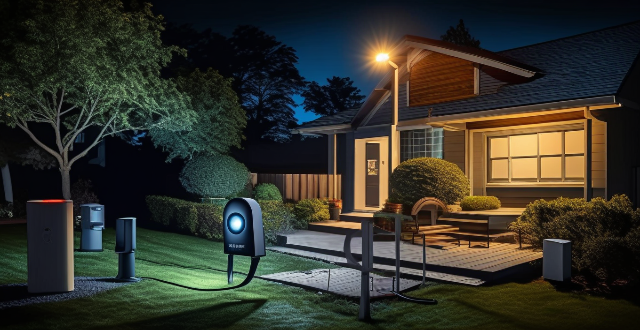
What features should I look for when choosing a home security system ?
When selecting a home security system, consider features likeWhen selecting a home security system, consider features like monitoring services, high-definition high-definition cameras with night vision and motion detection, smart home integration for remote control, sensors for intrusion and environmental hazards, and reliable customer support. Look for systems that offer additional benefits such as automation capabilities and come with a warranty for long-term peace of mind.

How do I make restaurant-quality meals at home without spending too much ?
To make restaurant-quality meals at home without spending too much, start by planning your meals and shopping smart. Prep ingredients in advance and master basic cooking techniques. Invest in good kitchen tools and create the right ambiance to enhance the dining experience. Remember that practice makes perfect, so keep trying new recipes and learning from mistakes. By following these steps, you can enjoy delicious, affordable meals at home.

In what ways is AI being integrated into smart home technology ?
The integration of AI into smart home technology is transforming our daily routines and making our lives more comfortable, convenient, and efficient. Some ways AI is being integrated into smart home technology include personalized experiences, voice assistants, security and surveillance, energy management, health monitoring, entertainment, and maintenance and repairs.

How can I protect my home from wildfires ?
Wildfires can cause significant damage to homes and properties, but there are steps you can take to protect your home. Create a defensible space by removing dead vegetation, trimming trees and shrubs, creating a firebreak, mowing grass regularly, and removing combustible materials. Use fire-resistant materials such as Class A roofing materials, stucco siding, dual-pane windows with tempered glass, and solid core doors made of metal or fiberglass. Maintain your home by cleaning gutters, inspecting roofs and chimneys, checking electrical wiring, and maintaining heating systems. Have an evacuation plan in place by identifying escape routes, having a meeting place, packing emergency kits, and practicing evacuation drills.

What are the best home security systems available in the market ?
Home security systems have become an essential part of modern homes, providing peace of mind and protection against burglaries, fires, and other emergencies. With the advancements in technology, there are several home security systems available in the market that offer a wide range of features and benefits. In this article, we will discuss some of the best home security systems available in the market.

What steps can I take to secure my home network ?
Securing your home network is crucial in today's digital age where cyber threats are constantly evolving. Here are some steps you can take to ensure the safety and privacy of your home network: Change default router settings, use strong encryption, set up a guest network, update device software, use firewall and encrypt data, secure your wireless signal, control device access, and monitor network activity. By following these steps, you can significantly enhance the security of your home network and protect your personal information from potential cyber threats.
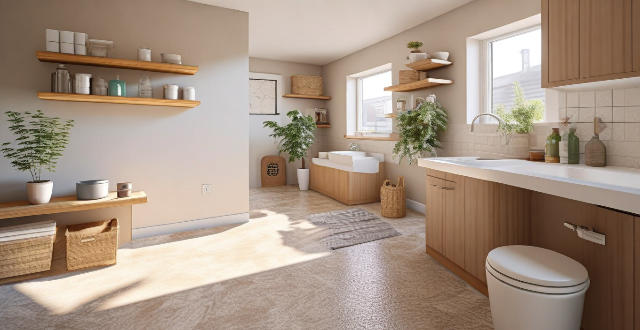
What are some effective home cleaning hacks ?
The article provides a comprehensive list of cleaning hacks for different areas of the home, such as the kitchen, bathroom, living area, and laundry room. Each section includes various tips and tricks to make cleaning easier and more efficient. For example, in the kitchen, using baking soda and vinegar can help degrease the oven, while steam cleaning with vinegar can easily clean the microwave. In the bathroom, soaking the showerhead in vinegar can remove deposits, and hydrogen peroxide can be used to clean tile and grout. The article also suggests using natural ingredients like olive oil and lemon juice for furniture polish and saltwater spray for ironing clothes. By following these simple yet effective cleaning hacks, readers can maintain a clean and organized home without spending too much time on cleaning tasks.

How do I implement water conservation measures at home ?
Water conservation is crucial for sustaining the environment and ensuring future generations have access to clean water. Here's how you can implement water conservation measures in your home: identify areas of water consumption, repair leaks promptly, collect rainwater, educate family members, and regularly review your habits. By implementing these measures, you can significantly reduce your home's water usage and contribute to a more sustainable future for our planet.